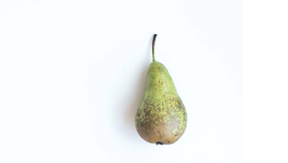|
Preconception and Prenatal Nutrition I wish someone would have told me that what I ate before and during pregnancy would affect my experience. Throughout my first twenty weeks (of my first pregnancy), I lost a great deal of weight from constant vomiting. I was anemic, I had trouble sleeping well, you name it. Upon meeting my precious midwife during my second trimester, my eyes were opened to the role nutrition plays during the journey. Pregnancy doesn’t have to be awful. These discomforts that we’ve accepted to be usual symptoms do not have to be your normal. Even if that yucky morning sickness isn’t eliminated completely, we can lessen its effects by diet (not restriction of certain foods but rather habitual nourishment). We don’t have to have zero energy. We don’t have to ache to no end. I would love to be the friend who may help open your eyes to the power of nutrition (on how what we consume can work for or against us in both trying to conceive and during pregnancy) both from my own pregnancy experience and my education in physiology of pregnancy and prenatal health. So, dear friends, starting a single prenatal vitamin after two pink lines appear on that blessed little test is a bit late. Of course, if your bundle of love was a surprise, that is your best option! For those who are planning ahead for a future pregnancy, there is much that can be done NOW to help ensure ultimate health for you and your future squish. Lets start with... Foods that boost fertility “Nutrition is the cornerstone of a healthy pregnancy. It is also the foundation of lifelong health and longevity for our kids.” -Aviva Romm, MD (The Natural Pregnancy Book) “Embracing foods that heal is the ultimate solution for maximizing your fertility. And once pregnant, you won’t need to worry about having the bloated, moody, and otherwise miserable experience that has become the norm. You’ll have more energy, your immune system will work more efficiently, and your body will be better at mending itself after you give birth.” -Alicia Silverstone (The Kind Mama) Are you having trouble eliminating waste? Eat more leafy greens and high fiber foods. Are you often feeling weak? Eat more foods rich in iron and protein. Make each snack and meal count for you and your baby. “If you realize that pregnancy is not an illness and that all you need to do is eat a wide, healthy diet and listen when your body tells you it needs something, you will get everything you need” - Diane Avoli (macrobiotic educator). So what are these healing foods? While I tend to have a bias towards certain eating practices, I believe no matter the foodie label you choose, eating clean, nutritious food is a possibility. Organic, non genetically modified, fresh foods are your best route for keeping a healthy, strong body and environment for your growing little. Vegetables, fruits, pastured and humane raised animal products, and or grains and beans (soaked/sprouted if you're ambitious) are wonderful choices. Making sure to consume all needed nutrients such as, good fats, minerals (macro and micro) and vitamins, protein (for veggie mommas - if a variety of incomplete proteins are eaten throughout the day, our bodies are able to combine and make complete proteins from them), fiber, carbohydrates, and enough fluids (water and herbal teas are excellent options) will help you thrive prenatally. Here is a small list of some tasty and nutritious pre-pregnancy, pregnancy, and all the time food options: Nuts - organic, raw walnuts (pecans and almonds are yummy too). Just a small handful provides about 25g of good fat, 6g of protein, potassium, magnesium, VitB6, fiber, and a bit of iron Bananas - A single banana provides potassium, fiber, and VitC. Its also a quick midnight snack in those early weeks when youre starving at ungodly hours Avocados - Lots of good fat (21g)! Flax seeds and or fish oil are also wonderful options for getting in those omega-3s Greens - My personal favorites are kale (a full 3g of protein in each serving, VitA, VitC, Iron, potassium, and calcium), cilantro (a source of VitA and a good cleansing herb known to remove unwanted metals from our systems), crispy romaine (provides fiber and protein), spinach in smoothies (a source of VitC), and brussels sprout (provides protein, lots of fiber, and VitC) Bison - If I am going to consume any meat, pastured and humane raised (no yucky cortisol/stress hormones being consumed here!), grass fed buffalo is my new go to. Bison is a superior form of animal protein, providing the highest amounts of VitB12, Iron, and protein over any another land animal. Root vegetables - turnips, onions (I prefer leeks and green onions), sweet potatoes, and carrots Grains and Beans - Quinoa is my favorite grain and it happens to be a complete protein. It can be cooked in broth instead of water and added to soups and salads for a protein boost Organic and pasture raised eggs with pink salt (against popular belief, good sodium in healthy amounts is actually needed in our bodies for fluid and electrolyte regulation. Himalayan pink salt to taste on most meals is my favorite). As for the eggs, “pastured” and “humane raised” are the only labels to trust. Vital Farms brand is our go to. Coconut milk yogurt - excellent with granola and contains needed probiotics for gut health and proper digestion. Fermented foods in general are excellent for adding to our gut flora (good bacteria in our intestines that are necessary for optimal digestion). Eating mindfully before and during pregnancy will not only help you feel the best you can, but may also help keep some pregnancy conditions and complaints such as constipation, headaches, exhaustion, and even preeclampsia and gestational diabetes at bay. (1, 2, 3) I personally do not believe that there is a magic number of grams per nutrient to reach each day. I rather encourage expecting mommas to eat mindfully so that they feel their best. The key is getting enough variety. According to W. Allan Walker, MD in his book 'The Harvard Medical School Guide to Healthy Eating During Pregnancy’, “New research confirms that what a woman eats during pregnancy can also profoundly affect the health of her baby when that baby becomes an adult - for better or for worse”. The British Journal of Nutrition agrees. In a study on rat offspring that was published in August of 2007, "A maternal ‘junk food’ diet in pregnancy and lactation promotes an exacerbated taste for ‘junk food’ and a greater propensity for obesity (in the child)”. In short, how you eat now can not only affect your pregnancy experience but also may even impact how you give birth and the health of your child. Here’s to our optimal nutrition which may safeguard our children’s future health and help us feel the best we can during this precious time. Warm wishes for a happy day! *Regardless of how you choose to eat, it is important to consult with a qualified healthcare provider to be sure you are receiving the proper nutrition before, during, and after pregnancy. 1. A diet that keeps blood sugar well controlled is both the optimal prevention and treatment of gestational diabetes” -Aviva Romm, MD (The Natural Pregnancy Book)
2. “The causes of eclampsia are related to a few factors, but includes poor nutrition. Following a healthy diet and lifestyle during pregnancy should, in itself, be preventative” -Aviva Romm, MD (The Natural Pregnancy Book) 3. A study conducted at Harvard University found that by eating enough protein per day (a minimum of 75g), pregnant women could prevent diseases of pregnancy such as preeclampsia” -Amy V. Haas (Nutrition During Pregnancy) If you’d like to read about preconception health and nutrition a bit further, I recommend this guest blog post on Mommy Potamus. It is written by a registered holistic nutritionist, prenatal wellness coach, and birth doula. Comments are closed.
|


